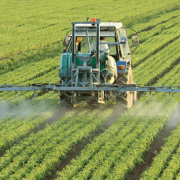EU: Commission opens a Knowledge Center to boost quality and fight against food fraud
Starting tomorrow, March 13th, the European Commission will put into operation a Knowledge Center on Food Fraud and Food Quality, managed by the Joint Research Center, in response to consumer concerns about the quality of food. food and fraudulent food practices. This new Knowledge Center, a network of experts from within and outside the Commission, will provide support to EU policy makers and national authorities, facilitating access to up-to-date scientific knowledge and the sharing of information on food fraud. and on issues of food quality.
Recently there have been cases of food fraud with olive oil, wine, honey, fish, dairy products, meat and poultry. In addition, consumers may be exposed to unfair commercial marketing practices, especially regarding food products with significant differences in composition, which are offered in different markets but with similar packaging.
Concerns about food fraud and food quality erode consumer confidence and damage the entire food supply chain in Europe, from producers to retailers
Tibor Navracsics, Commissioner for Education, Culture, Youth and Sport, and Head of the Joint Research Center, will launch the new Knowledge Center on Food Fraud and Food Quality in Strasbourg, in the presence of Maroš Šefčovič, Vice President responsible of the Energy Union, and Vĕra Jourová, Commissioner of Justice, Consumers and Gender Equality.
In the words of Navracsics, “food is an area in which Science can demonstrate what it brings to citizens in a very direct and tangible way. The quality of the food we consume is important to all of us and, given that food fraud is a transnational criminal activity, the EU is called upon to play a leading role in the response. The implementation of the Knowledge Center on Food Fraud and Food Quality is an important step, which will help to protect the integrity of the EU food chain and safeguard the quality of food products, thus generating added value clear for Europeans».
For Commissioner Jourová, “the Commission takes the issue of food quality and unjustifiable differentiation very seriously, and has already taken concrete measures to address it. A fundamental part of this work is to have better scientific data. This newly created Knowledge Center, made up of experts who contribute their knowledge from very diverse backgrounds, inside and outside the Commission, will contribute to the collection and processing of scientific evidence. Their work will also develop a common methodology of analysis, which, in turn, will help us to implement and enforce food legislation and consumer protection.
The Knowledge Center on Food Fraud and Food Quality:
• coordinate market surveillance activities, for example in terms of composition and organoleptic properties of foods marketed under the same brand name and packaged in various EU markets;
• have a system of information and early warning about food fraud, for example by monitoring the media and transmitting this information to the population;
• connect the information systems of the Member States and the Commission, such as databases with the composition of certain high-value agri-food products, such as wine or olive oil;
• generate specific knowledge by country, for example, indicating the competencies and laboratory infrastructures of the Member States.
The Knowledge Center on Food Fraud and Food Quality will produce newsletters, interactive maps, databases and periodic reports and will make this information public
This Center will be fully funded by the Commission. The groups of experts will be more or less large depending on the subject that they have to deal with. The Knowledge Center comes to complement the EU Network against Food Fraud, providing an interface between science and policy making.
The launching of the Knowledge Center is the opening of the exhibition entitled “Putting science at the heart of the development of EU policies”, which is presented at the European Parliament’s headquarters in Strasbourg, where they are illustrated the work and history of the Joint Research Center since its inception in 1957.
Background
In the European Union, the food chain is governed, inter alia, by general food legislation, legislation on food information provided to consumers and the Directive on unfair commercial practices, which require that agricultural products meet certain standards of composition and quality.
The Joint Research Center has a long experience in bromatology, which covers the investigation of authenticity and the development, application and validation of analytical methods to detect fraud in the food chain.
The Knowledge Center on Food Fraud and Food Quality is the fifth one created, following those of Bioeconomy, Territorial Policies, Migration and Demography and Catastrophe Risk Management
Source: Spanish Office of the European Commission
YOU MIGHT ALSO LIKE:
➡️EU: the Commission will ensure that the US comply with the rules of the WTO in its investigation of the Spanish olive

















